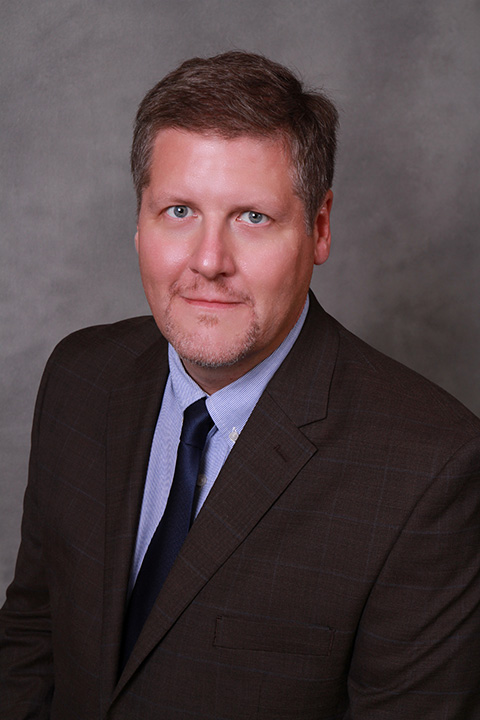October 11, 2016
Purdue Profiles: Jonathan Swarts
 Jonathan Swarts, professor of political science and interim department head at Purdue Northwest. (Photo provided)
Download image
Jonathan Swarts, professor of political science and interim department head at Purdue Northwest. (Photo provided)
Download image
An election year is always an interesting time to be a political science professor. Jonathan Swarts, professor of political science and interim department head at Purdue Northwest, recalls what first intrigued him about politics and what he hopes to pass on to his students.
Swarts has a bachelor's degree in political science from the University of Akron and a master's and doctoral degree from The Ohio State University with an emphasis on comparative politics and international relations.
What in your experiences as a student pushed you toward politics?
I always remember politics being discussed around the house and I seemed naturally interested in it as well. In addition, my undergraduate and early graduate years coincided with the collapse of Communism in Eastern Europe and the end of the Cold War. In those few short years, the very nature of world politics in the post-World War II period -- that is, the superpower rivalry between the United States and the Soviet Union -- disappeared. The countries of Eastern Europe broke away from Soviet domination, the Berlin Wall fell and eventually the Soviet Union itself went out of existence. I remember being aware that something very fundamental and transformational was taking place right before our eyes and it was hard not to get excited about that.
What do you hope students take away from your lectures?
My hope is that students will get enthused about the world around them, and about politics specifically, the way I did as a student. As someone who studies international politics, I want my students to get excited learning about the larger world around them, not just the politics of other countries, but also their histories, cultures and societies. The world of the 1980s and 1990s was an exciting place. But today's world is just as fascinating and exciting to study. The big issues we face in the world -- war, peace, security, poverty, human rights and development -- are still as pressing as ever, and just as much of a challenge to today's students. That's what I hope to communicate to my students and hopefully get them enthused about.
Getting students' attention is made easier when you as an instructor are genuinely enthused and interested in the topic. If I get excited and seem genuinely enthused about what I'm lecturing on that day, that seems to rub off and students get interested too. It also helps that the topics I teach are naturally interesting -- or at least I think so. Issues of international security are issues of life and death for real people every day. They're inherently important. Moreover, topics like terrorism, espionage, nuclear weapons, and migration tend to be controversial. So the fact they're contested in current political debate makes them even more appealing as topics of academic study.
What is the most challenging part of being a political science professor?
The most challenging aspect of teaching political science is to overcome some students' sense that politics is dry, dusty and boring (not so much a problem this election year!), too difficult to understand or simply not relevant to their lives. Like the public at large, many students are cynical and disaffected about domestic politics, and they often believe that international affairs are too confusing to follow, or simply irrelevant to them. A key part of my job is convincing them otherwise. I try to convince them that what happens around the world is not only fascinating in its own right, but that it directly affects all of our lives, everything from the price we pay for gas or food to whether young men and women in the armed forces are called to fight in foreign conflicts. I also point out that, as people living in the world's most powerful country -- politically, militarily and economically -- we Americans almost have a special responsibility to be knowledgeable and sensitive to the world around us, given the impact that our actions and those of our country have on the rest on the world.
What is the most rewarding part of being a political science professor?
Without a doubt, it's when a student tells me at the end of a semester that he or she took my class being uninterested and uninformed about politics and international affairs, but now is not only interested in the world around us, but actually wants to learn and investigate more. It's incredibly rewarding simply to have a student tell you that he or she now turns on the news and watches it regularly because now they feel that they can follow what's going on in an informed way. They know something of the history and politics behind what they're seeing. So, the greatest reward for me is when I can help spark that interest and enthusiasm for learning about the politics, history and cultures of other countries and how those countries interact with each other.
Writer: Megan Huckaby, 765-496-1325, mhuckaby@purdue.edu

